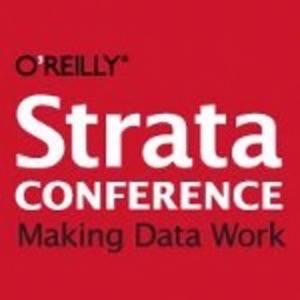At the Strata Jumpstart session on Tuesday, Diego Saenz of Data Driven CEO made the case for three skills that are must haves for CEOs to become “data driven.”

Much of Saenz’s talk focused on one specific data-driven CEO: Robert McDonald of Procter and Gamble (P&G).
He Is the Very Model of a Data Driven CEO
P&G has been lauded for its efforts to embrace big data, even as it’s been making cuts in other parts of its business.

Saenz called McDonald a “visionary’ who “early on, understood that data is the raw material of any business.” The vision? To track everything in the company “from the creation of molecules in the lab to the point of sale data from retail partners around the world.”
By any measure, that’s a lot of data. Saenz says that P&G does business in 80 countries and averages about 4 billion transactions daily. This can mean collecting as much as 200 TB of data to catch trends and opportunities for P&G’s leadership.
To cope with all the data, McDonald led the creation of the Business Sphere. This is a system with an eight foot tall, 32-foot wide concave screen in the P&G headquarters in Cincinnati, Ohio. The conference room has seats for the entire executive team, and one analyst that helps the team dive into the data.
Not that all the data is locked up with the executive team in Cincinnati. Saenz says employees also have iPad applications that allow them to move from a view of the world map “to a graph of toothpaste prices in India and a sales comparison that shows local brands are gaining share.”
The Big Three
So P&G’s efforts are impressive, but also expensive and probably out of scope for many CEOs and their companies. But the skills for “data driven” CEOs are the same for startup CEOs or the CEOs of major companies like P&G.
The first, says Saenz is strategic data planning. Saenz says that data is “the new raw material for any business, on par with capital, people and labor.” If you’re not managing data, says Saenz, “you’re not managing the business.”
Second is analytical skills. Saenz says that CEOs don’t have to become experts in R, but need to be “incredibly smart about asking the right questions.”
Too many CEOs, he says, don’t ask the “why” questions and reach the wrong conclusions from data.
Third, even though CEOs don’t need to be R hackers or Hadoop experts, they do need technology skills. CEOs need to “embrace technology and make it a key part of their skill set,” says Saenz. The days when CEOs could ignore technology? They’re over.

















